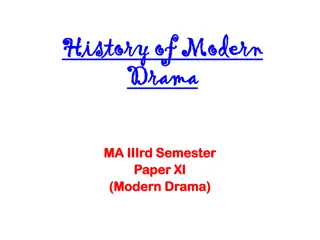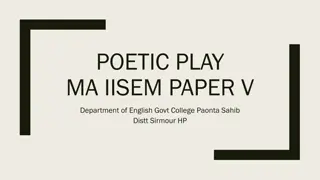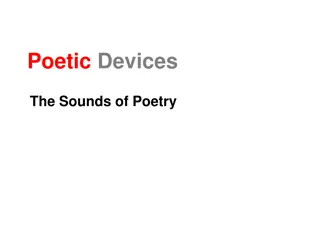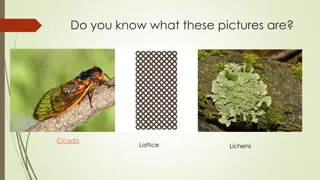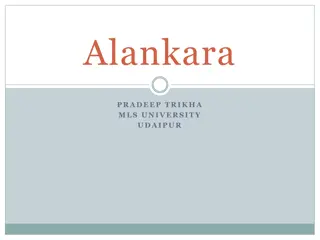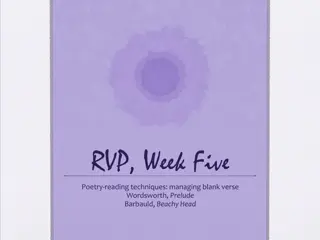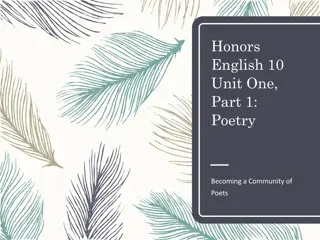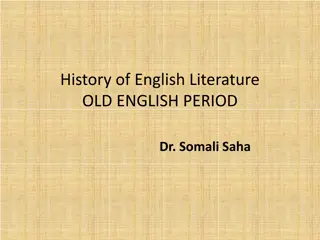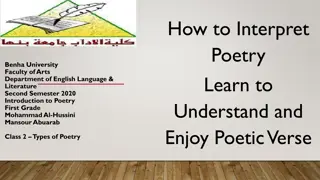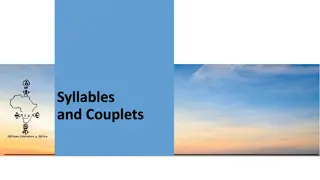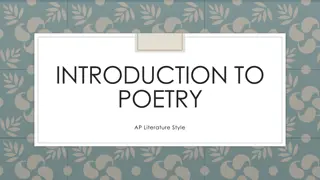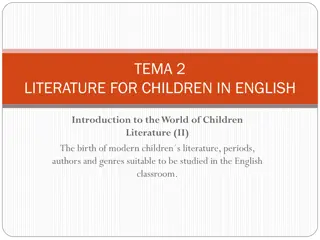Poetic Terms in English Literature
Explore various poetic terms such as analogy, simile, hyperbole, and personification illustrated with vivid examples like "My love is like a red, red rose" and "His eyes were daggers that cut right through me." Learn how these literary devices enrich the imagery and meaning in poetry.
Download Presentation

Please find below an Image/Link to download the presentation.
The content on the website is provided AS IS for your information and personal use only. It may not be sold, licensed, or shared on other websites without obtaining consent from the author.If you encounter any issues during the download, it is possible that the publisher has removed the file from their server.
You are allowed to download the files provided on this website for personal or commercial use, subject to the condition that they are used lawfully. All files are the property of their respective owners.
The content on the website is provided AS IS for your information and personal use only. It may not be sold, licensed, or shared on other websites without obtaining consent from the author.
E N D
Presentation Transcript
POETIC TERMS English III Mr. Wallock
A reference to a historical figure, place, or event.
The teams competed in a David and Goliath struggle.
ANALOGY A broad comparison between two basically different things that have some points in common.
ANALOGY Aspirations toward space are not new. Consider the worm that becomes a butterfly.
A direct comparison between two basically different things. A simile is introduced by the words like or as .
My love is like a red, red rose.
An implied comparison between two basically different things. Is not introduced with the words like or as .
His eyes were daggers that cut right through me.
HYPERBOLE A great exaggeration to emphasize strong feeling.
HYPERBOLE I will love you until all the seas go dry.
Human characteristics are given to non-human animals, objects, or ideas.
My stereo walked out of my car.
An absent person or inanimate object is directly spoken to as though they were present.
Brutus: Ceasar, now be still. I killed not thee with half so good a will.
SYNECDOCHE A part stands for the whole or vice versa.
SYNECDOCHE The hands that created the work of art were masterful.
Hints given to the reader of what is to come.
The stalwart hero was doomed to suffer the destined end of his days.
The use of concrete details that appeal to the five senses.
Cold, wet leaves floating on moss- colored water.
IRONY A contrast between what is said and what is meant. Also, when things turn out different than what is expected.
IRONY The treacherous instrument is in thy hand, unbated and envenomed. The foul practice has turned itself on me. Laertes
The overall atmosphere or prevailing emotional feeling of a work.
It was the best of times, it was the worst of times.
A seemingly self- contradictory statement that still is true.
The more we learn, the less we know.
PLOT A series of events that present and resolve a conflict. The story being told.
PLOT The plot of The Most Dangerous Game is that Rainsford is being hunted by General Zaroff.
POINT OF VIEW The vantage point from which an author presents the action in a work.
POINT OF VIEW 1st person-tale related by a character in the story. I or me 3rd person-story told by someone not participating in the plot. he, she, they
The repetition of identical sounds at the ends of lines of poetry.
He clasps the crag with crooked hands Close to the sun in lonely lands from The Eagle
The repetition of identical sounds within a line of poetry.
We three shall flee across the sea to Italy. Or Hold infinity in the palm of your hand And eternity in an hour.
SLANT RHYME A slant rhyme or half rhyme occurs when the vowel sounds are not quite identical.
SLANT RHYME And on that cheek and o er that brow A mind at peace with all below
SETTING The time (both the time of day and period in history) and place in which the action of a literary work takes place.
SETTING Tiger! Tiger! burning bright In the forests of the night
REPETITION The repeating of a sound, word, phrase, or more in a given literary work.
REPETITION I sprang to the stirrup, and Jarvis, and he; I galloped, Derrick galloped, we galloped all three
The repetition of consonant sounds at the beginnings of words.
Swiftly, swiftly flew the ship
ASSONANCE The repetition of similar vowel sounds followed by different consonant.
ASSONANCE . . .that hoard, and sleep, and feed, and know not me.
The repetition of consonant sounds that are preceded by different vowel sounds.
Wherever we go Silence will fall like dews
ONOMATOPOEIA The use of words whose sounds suggest the sounds made by objects or activities.
Other examples: buzz, hum, kiss ONOMATOPOEIA Blind eyes could blaze like meteors
SYMBOL/SYMBOLISM Something concrete, such as an object, action, character, or scene that stands for something abstract such as a concept or an idea.
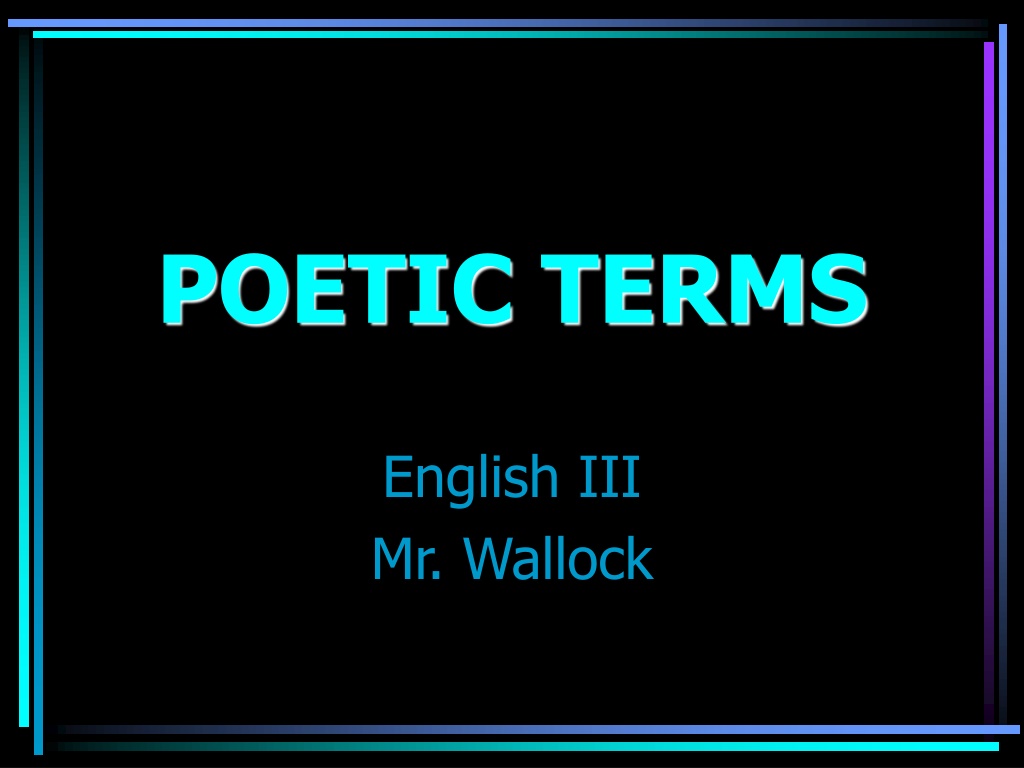
 undefined
undefined




 undefined
undefined



